#psalm 65:7
Photo

You who still the noise of the seas, the noise of their waves, and the tumult of the peoples.
Psalm 65:7
163 notes
·
View notes
Photo

Psalm 65:7 (NIV) -
who stilled the roaring of the seas,
the roaring of their waves,
and the turmoil of the nations.
69 notes
·
View notes
Text
Psalm 65:7 He Calms Everything
You who still the noise of the seas, the noise of their waves, and the tumult of the peoples. Psalm 65:7
Noise and chaos appear to be everywhere. No matter where a person goes, there is something going on, busyness, rushing here, there and everywhere. In the midst of all the noise there are problems, disasters, both natural and man driven, occurring. Everything and everyone are trying to draw…

View On WordPress
0 notes
Text
1. Isaiah 41:10 (NKJV). “Fear not, for I am with you; Be not dismayed, for I am your God. I will strengthen you, Yes, I will help you, I will uphold you with My righteous right hand.”
2. Deuteronomy 31:6 (NKJV). “Be strong and of good courage, do not fear nor be afraid of them; for the Lord your God, He is the One who goes with you. He will not leave you nor forsake you.”
3. 1 Peter 3:12 (ESV). “For the eyes of the Lord are on the righteous, and his ears are open to their prayer. But the face of the Lord is against those who do evil.”
4. Psalms 65:2 (GW). “You are the one who hears prayers. Everyone will come to you.”
5. Jeremiah 1:5 (NIV). “Before I formed you in the womb I knew you, before you were born I set you apart; I appointed you as a prophet to the nations.”
6. 1 Peter 5:7 (NLT). “Give all your worries and cares to God, for he cares about you.”
7. John 3:16 (NIV). “For God so loved the world that he gave his one and only Son, that whoever believes in him shall not perish but have eternal life.”
Amen! 🙏🕊️🙌
85 notes
·
View notes
Text
how to read the Bible
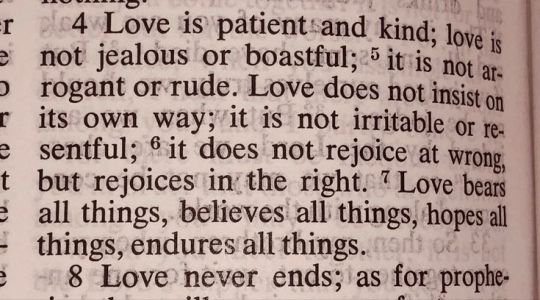
this is in order!
1. John
2. Mark
3. Matthew
4. Luke
5. Genesis
6. Exodus
7. Leviticus
8. Numbers
9. Dueteronomy
10. Romans
11. Galatians
12. Colossians
13. Proverbs
14. Ecclesiastes
15. Job
16. 1 Peter
17. 1 Corinthians
18. 2 Corinthians
19. Ephesians
20. Philippians
21. 1 Thessalonians
22. 2 Thessalonians
23. 1 Timothy
24. 2 Timothy
25. James
26. 2 Peter
27. 1 John
28. 2 John
29. 3 John
30. Jude
31. Psalms
32. Joshua
33. Judges
34. 1 Samuel
35. 2 Samuel
36. 1 Kings
37. 2 Kings
38. 1 Chronicles
39. 2 Chronicles
40. Ezra
41. Nehemiah
42. Jeremiah
43. Lamentations
44. Ezekiel
45. Joel
46. Amos
47. Obadiah
48. Nahum
49. Habakkuk
50. Zephaniah
51. Haggai
52. Zechariah
53. Malachi
54. Micah
55. Hosea
56. Luke
57. Esther
58. Jonah
59. Song of Solomon
60. Acts
61. Titus
62. Philemon
63. Hebrew
64. Isaiah
65. Daniel
66. Revelation
56 notes
·
View notes
Text
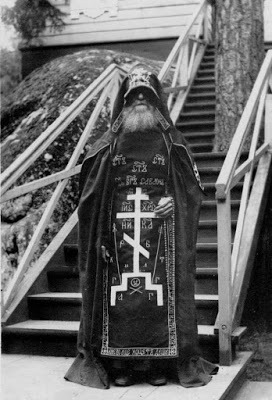
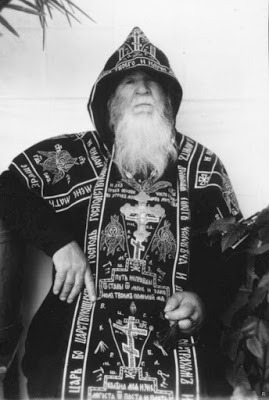
The άνάλαβος (analavos) is the distinctive garment of a monk or a nun tonsured into the highest grade of Orthodox monasticism, the Great Schema, and is adorned with the instruments of the Passion of Christ. It takes its name from the Greek αναλαμβάνω (“to take up”), serving as a constant reminder to the one who wears it that he or she must “take up his cross daily” (Luke 9:23). The ornately-plaited Crosses that cover the analavos, the polystavrion (πολυσταύριον, from πολύς, “many,” and σταυρός, “Cross”) — a name often, though less accurately, also applied to the analavos — reminds the monastic that he or she is “crucified with Christ” (Galatians 2:20).
With regard to each image on the analavos, the rooster represents “the cock [that] crowed” (Matthew 26:74; Mark 14:68 Luke 22:60; John 18:27) after Saint Peter had “denied thrice” His Master and Lord (John 13:38).
The pillar represents the column to which Pilate bound Christ “when he scourged Him” (Mark 15:15) “by Whose stripes we were healed” (Isaiah 53:5; I Peter 2:24).
The wreath garlanding the Cross represents the “crown of thorns” (Matthew 27:29; Mark 15:17; John 19:2) that “the soldiers platted” (John 19:2) and “put upon the head” (Matthew 27:29) of “God our King of old” (Psalm 73:13), Who freed man from having to contend against “thorns and thistles in the sweat of his brow” (Genesis 3:18-19).
The upright post and the traverse beam represent the stipes and the patibulum that formed “the Cross of our Lord Jesus Christ” (Galatians 6:14), upon which “all day long He stretched forth His hands unto a disobedient and gainsaying people” (Isaiah 65:2; Romans 10:21).
The four spikes at the center of the Cross and the hammer beneath its base represent the “nails” (John 20:25) and hammer with which “they pierced” (Psalm 21:16; John 19:37) “His hands and His feet” (Luke 24:40). when they “lifted up from the earth” (John 12:32) Him Who “blotted out the handwriting of ordinances that was against us by nailing it to His Cross” (Colossians 2:14).
The base upon which the Cross stands represents “the place, which is called 'Calvary' (Luke 23:33), or 'Golgotha', that is to say, the Place of the Skull” (Matthew 27:33), “where they crucified Him” (John 19:18) Who “wrought salvation in the midst of the earth” (Psalm 73:13).
The skull and crossbones represent “the first man Adam” (I Corinthians 15:45), who by tradition “returned unto the ground” (Genesis 3:19) at this very spot, the reason that this place of execution, “full of dead men’s bones” (Matthew 23:27) became the place where “the last Adam was made a quickening spirit” (I Corinthians 15:45).
The plaque on top of the Cross represents the titulus, the “title” (John 19:19-20), with “the superscription of His accusation” (Mark 15:26), which “Pilate wrote” (John 19:19) “and set up over His head” (Matthew 27:37); however, instead of “Jesus of Nazareth the king of the Jews” (John 19:19), which “was written over Him in letters of Greek, and Latin, and Hebrew” (Luke 23:38), the three languages being an allusion to the Three Hypostases “of the Father, and of the Son, and of the Holy Spirit” (Matthew 28:19), this titulus reads, “The King of Glory” (Psalm 23:7-10), “for had they known it they would not have crucified the Lord of glory” (I Corinthians 2:8).
The reed represents the “hyssop” (John 19:29) upon which was put “a sponge full of vinegar” (Mark 15:36), which was then “put to His mouth” (John 19:29) when in His “thirst they gave Him vinegar to drink” (Psalm 68:21), Him of Whom it was said that “all wondered at the gracious words which proceeded out of His mouth” (Luke 4:22).
The lance represents the “spear [that] pierced His side”; “and forthwith came there out blood and water” (John 19:34) from Him Who “took one of Adam's ribs, and closed up the flesh instead thereof" (Genesis 2:21) and Who “washed us from our sins in His own blood” (Revelation 1:5).
The plaque at the bottom of the Cross represents the suppedaneum of Christ, “His footstool” (Psalm 98:5), “the place where His feet have stood” (Psalm 131:7). It is slanted because, according to one tradition, at the moment when “Jesus cried with a loud voice, and gave up the spirit” (Mark 15:37), He allowed a violent death spasm to convulse His legs, dislodging His footrest in such a manner that one end pointed upwards, indicating that the soul of the penitent thief, Saint Dismas, “the one on His right hand” (Mark 15:27) would be “carried up into Heaven” (Luke 24:51), while the other end, pointed downwards, indicated that the soul of the impenitent thief, Gestas, “the other on His left” (Mark 15:27), would “be thrust down to Hell” (Luke 10:15), showing that all of us, “the evil and the good, the just and the unjust” (Matthew 5:45), “are weighed in the balance” (Ecclesiasticus 21:25) of the Cross of Christ.
The ladder and the pincers beneath the base of the Cross represent the means of deposition by which Saint Joseph of Arimathea, “a rich man” (Matthew 27:57) who “begged for the body of Jesus” (Matthew 27:58; Luke 23:52), “took it down” (Luke 23:53), so that as in body He descended from the Cross, so in soul “He also descended first into the lower parts of the earth” (Ephesians 4:9), “by which also He went and preached unto the spirits in prison” (I Peter 3:19).
Through these instruments, “the Cross of Christ” (I Corinthians 1:17: Galatians 6:12; Philippians 3:18) became the “Tree of Life” (Genesis 2:9; 3:22, 24; Proverbs 3:18, 11:30; 13:12; 15:4; Revelation 2:7; 22:2,14), by which the Lord Jesus reified His words that, “I am the resurrection, and the life: he that believeth in Me, though he were dead, yet shall he live, and whosoever liveth and believeth in Me shall never die” (John 11:25-26).
[source]
17 notes
·
View notes
Text

God Gives What Is Good
1 The Lord says, “All you who are thirsty,
come and drink.
Those of you who do not have money,
come, buy and eat!
Come buy wine and milk
without money and without cost.
2 Why spend your money on something that is not real food?
Why work for something that doesn’t really satisfy you?
Listen closely to me, and you will eat what is good;
your soul will enjoy the rich food that satisfies.
3 Come to me and listen;
listen to me so you may live.
I will make an agreement with you that will last forever.
I will give you the blessings I promised to David.
4 I made David a witness of my power for all nations,
a ruler and commander of many nations.
5 You will call for nations that you don’t yet know.
And these nations that do not know you will run to you
because of the Lord your God,
because of the Holy One of Israel who honors you.”
6 So you should look for the Lord before it is too late;
you should call to him while he is near.
7 The wicked should stop doing wrong,
and they should stop their evil thoughts.
They should return to the Lord so he may have mercy on them.
They should come to our God, because he will freely forgive them.
8 The Lord says, “My thoughts are not like your thoughts.
Your ways are not like my ways.
9 Just as the heavens are higher than the earth,
so are my ways higher than your ways
and my thoughts higher than your thoughts.
10 Rain and snow fall from the sky
and don’t return without watering the ground.
They cause the plants to sprout and grow,
making seeds for the farmer
and bread for the people.
11 The same thing is true of the words I speak.
They will not return to me empty.
They make the things happen that I want to happen,
and they succeed in doing what I send them to do.
12 “So you will go out with joy
and be led out in peace.
The mountains and hills will burst into song before you,
and all the trees in the fields will clap their hands.
13 Large cypress trees will grow where thornbushes were.
Myrtle trees will grow where weeds were.
These things will be a reminder of the Lord’s promise,
and this reminder will never be destroyed.”
— Isaiah 55 | New Century Version (NCV)
The Holy Bible, New Century Version®. Copyright © 2005 by Thomas Nelson, Inc.
Cross References: Numbers 23:19; Deuteronomy 4:7; Deuteronomy 4:29; Deuteronomy 32:2; 2 Samuel 7:19; 2 Samuel 22:44; 1 Chronicles 16:33; Psalm 18:43; Psalm 22:26; Psalm 33:11; Psalm 65:12-13; Psalm 96:12; Psalm 103:11; Isaiah 1:16; Isaiah 5:6; Isaiah 14:24; Isaiah 16:5; Isaiah 45:14; Matthew 5:6; Matthew 10:8; Matthew 24:35; John 6:27; Acts 8:22; Acts 13:34; Romans 10:5; 2 Corinthians 9:10
#invitation#rebels#receive#forgiveness#restoration#Lord#blessing#Isaiah 55#Book of Isaiah#Old Testament#NCV#New Century Version#Holy Bible#Thomas Nelson Inc.
16 notes
·
View notes
Text
Psalms chapter 65
1 (To the chief Musician, A Psalm and Song of David.) Praise waiteth for thee, O God, in Sion: and unto thee shall the vow be performed.
2 O thou that hearest prayer, unto thee shall all flesh come.
3 Iniquities prevail against me: as for our transgressions, thou shalt purge them away.
4 Blessed is the man whom thou choosest, and causest to approach unto thee, that he may dwell in thy courts: we shall be satisfied with the goodness of thy house, even of thy holy temple.
5 By terrible things in righteousness wilt thou answer us, O God of our salvation; who art the confidence of all the ends of the earth, and of them that are afar off upon the sea:
6 Which by his strength setteth fast the mountains; being girded with power:
7 Which stilleth the noise of the seas, the noise of their waves, and the tumult of the people.
8 They also that dwell in the uttermost parts are afraid at thy tokens: thou makest the outgoings of the morning and evening to rejoice.
9 Thou visitest the earth, and waterest it: thou greatly enrichest it with the river of God, which is full of water: thou preparest them corn, when thou hast so provided for it.
10 Thou waterest the ridges thereof abundantly: thou settlest the furrows thereof: thou makest it soft with showers: thou blessest the springing thereof.
11 Thou crownest the year with thy goodness; and thy paths drop fatness.
12 They drop upon the pastures of the wilderness: and the little hills rejoice on every side.
13 The pastures are clothed with flocks; the valleys also are covered over with corn; they shout for joy, they also sing.
5 notes
·
View notes
Text
Books of the Bible
Here is a detailed list of the 66 books of the Bible, divided by the Old and New Testaments, along with their divisions and categories:
**Old Testament:**
**Pentateuch (5 books):**
1. Genesis
2. Exodus
3. Leviticus
4. Numbers
5. Deuteronomy
**Historical Books (12 books):**
6. Joshua
7. Judges
8. Ruth
9. 1 Samuel
10. 2 Samuel
11. 1 Kings
12. 2 Kings
13. 1 Chronicles
14. 2 Chronicles
15. Ezra
16. Nehemiah
17. Esther
**Poetry/Wisdom Books (5 books):**
18. Job
19. Psalms
20. Proverbs
21. Ecclesiastes
22. Song of Solomon
**Major Prophets (5 books):**
23. Isaiah
24. Jeremiah
25. Lamentations
26. Ezekiel
27. Daniel
**Minor Prophets (12 books):**
28. Hosea
29. Joel
30. Amos
31. Obadiah
32. Jonah
33. Micah
34. Nahum
35. Habakkuk
36. Zephaniah
37. Haggai
38. Zechariah
39. Malachi
**New Testament:**
**Gospels (4 books):**
40. Matthew
41. Mark
42. Luke
43. John
**History (1 book):**
44. Acts
**Pauline Epistles (13 books):**
45. Romans
46. 1 Corinthians
47. 2 Corinthians
48. Galatians
49. Ephesians
50. Philippians
51. Colossians
52. 1 Thessalonians
53. 2 Thessalonians
54. 1 Timothy
55. 2 Timothy
56. Titus
57. Philemon
**General Epistles (8 books):**
58. Hebrews
59. James
60. 1 Peter
61. 2 Peter
62. 1 John
63. 2 John
64. 3 John
65. Jude
**Apocalyptic (1 book):**
66. Revelation
This list represents the traditional order and grouping of the books of the Bible in most Christian denominations.

These are the 66 books that make up the Bible.
Title: The Significance of Each Book of the Bible
Introduction:
The Bible is a collection of 66 books that together form the inspired Word of God. Each book has its own unique message, themes, and significance that contribute to the overall story of God's redemption and love for humanity. Let's explore the importance of each book of the Bible.
Lesson Points:
1. The Old Testament:
- Genesis: The book of beginnings, detailing creation, the fall, and the establishment of God's covenant with His people.
- Exodus: The story of the Israelites' liberation from Egypt and the giving of the Law at Mount Sinai.
- Psalms: A collection of songs and prayers that express a range of human emotions and provide a guide for worship.
- Proverbs: Wisdom literature that offers practical advice for living a righteous and wise life.
- Isaiah: Prophecies about the coming Messiah and God's plan of salvation.
2. The New Testament:
- Matthew: Emphasizes Jesus as the fulfillment of Old Testament prophecies and the establishment of the kingdom of God.
- Acts: Chronicles the early spread of the Gospel and the growth of the early church.
- Romans: Explains the doctrine of justification by faith and the implications of salvation through Christ.
- Corinthians: Addresses issues within the church and provides practical guidance for Christian living.
- Revelation: Offers apocalyptic visions of the end times, the victory of Christ, and the establishment of the new heaven and earth.
3. Themes and Messages:
- Each book of the Bible contributes to the overarching themes of God's love, redemption, forgiveness, and salvation for all humanity.
- Together, these books provide a complete narrative of God's work in the world and His plan for His people.
Application:
- Take time to explore and study each book of the Bible, seeking to understand its unique message and significance.
- Reflect on how the themes and stories in the Bible can impact your own life and faith journey.
- Consider how the teachings and examples in the Bible can shape your beliefs and actions as a follower of Christ.
Conclusion:
The books of the Bible are not just separate entities but are interconnected parts of the larger story of God's redemption and love for humanity. Each book has its own importance and contributes to the overall message of God's plan for salvation. May we approach the study of the Bible with reverence and openness to the wisdom and guidance it offers for our lives.

2 notes
·
View notes
Text
Heartstrings: Glorious Praise to the God of Heaven and Earth
Praising God from a pure heart, acknowledging Him in all of our ways, is pleasing in His sight. He is God, Creator, and Ruler of all. We have no life apart from Him. The life of every living creature, and the breath of all mankind is in His hand. (See Job 12:10)
He has no pleasure in disloyal hearts. (See 1 Samuel 15:20-23, Isaiah 29:13-14, Ezekiel 33:31-32, and John 4:21-24)
"Let us lift our hearts and hands to God in heaven." (Lamentations 3:41)
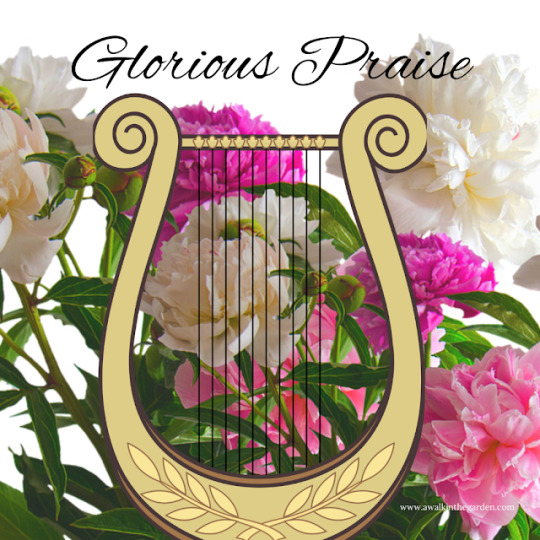
"Oh come, let us sing to the Lord! Let us shout joyfully to the Rock of our salvation. Let us come before His presence with thanksgiving; let us shout joyfully to Him with psalms. For the Lord is the great God, and the great King above all gods. In His hand are the deep places of the earth; the heights of the hills are His also. The sea is His, for He made it; and His hands formed the dry land. Oh come, let us worship and bow down; let us kneel before the Lord our Maker. For He is our God, and we are the people of His pasture, and the sheep of His hand." (Psalm 95:1-7)
See Also: Psalm 1, Psalm 2, Psalm 3, Psalm 4, Psalm 5, Psalm 7, Psalm 8, Psalm 9, Psalm 13, Psalm 16, Psalm 18, Psalm 19, Psalm 22, Psalm 23, Psalm 24, Psalm 27, Psalm 28, Psalm 29, Psalm 30, Psalm 33, Psalm 34, Psalm 42, Psalm 43, Psalm 47, Psalm 48, Psalm 50, Psalm 64, Psalm 65, Psalm 66, Psalm 67, Psalm 75, Psalm 81, Psalm 89, Psalm 92, Psalm 98, Psalm 99, Psalm 100, Psalm 101, Psalm 103, Psalm 104, Psalm 105, Psalm 106, Psalm 107, Psalm 108, Psalm 111, Psalm 112, Psalm 113, Psalm 115, Psalm 117, Psalm 118, Psalm 134, Psalm 138, Psalm 144, Psalm 145, Psalm 146, Psalm 147, Psalm 148, Psalm 149, Psalm 150
For deeper meditation, read the entire Book of Psalms.
Speak to one another, in psalms and hymns and spiritual songs. Sing and make melody in your heart to the Lord, giving thanks always, for all things to God the Father, in the name of our Lord Jesus Christ. {Ephesians 5:19}
- A Walk In The Garden Devotions
7 notes
·
View notes
Text
The Ultimate Bible Reading Plan
About
This list of resources and guided Bible Reading plan was compiled by Ryan Birk. It contains the scriptures to read daily as well as links to each scripture on the Bible App to make it easy for you. You will also see videos and helpful links. For more helpful resources, please visit HolyMountaiin.com
CLICK HERE to learn how to save this page to your phone as an app.
Introductions:
Click here for the: ABOUT VIDEO
Click here for the: FOUNDATIONS page
Click Here to join the: FB GROUP
Before you Begin:
here is a video on “reading/studying God’s Word”
Here is a video on “how to read the Psalms” (the psalms will be spread out throughout this reading plan)
Streetlights New Testament // Physical Copy
Breakdown of each Book of the Bible
"Each Day" our Daily Bread
1 2 3 4 5 6
7 8 9 10 11 12
13 14 15 16 17 18
19 20 21 22 23 24
25 26 27 28 29 30
31 32 33 34 35 36
37 38 39 40 41 42
43 44 45 46 47 48
49 50 51 52 53 54
55 56 57 58 59 60
61 62 63 64 65 66
67 68 69 70 71 72
73 74 75 76 77
78 79 80 81 82
83 84 85 86 87
88 89 90 91 92 93
94 95 96 97 98 99
100 101 102 103 104
105 106 107 108 109
110 111 112 113 114 115
116 117 118 119 120 121
122 123 124 125 126 127
128 129 130 131 132
133 134 135 136 137
138 139 140 141 142 143
144 145 146 145 146
147 148 149 150 151
152 153 154 155 156
153 154 155 156 157
158 159 160 161 162
163 164 165 166 167
168 169 170 171 172
173 174 175 176
177 178 179 180 181
182 183 184 185 186
187 188 189 190 191 192
193 194 195 196 197 198
199 200 201 202 203 204
205 206 207 208 209 210
211 212 213 214 215 216
217 218 219 220 221 222
223 224 225 226 227 228
229 230 231 232 233
234 235 236 237 238
239 240 241 242 243
244 245 246 247 248
249 250 251 252
253 254 255 256 257 258
259 260 261 262 263 264
265 266 267 268 269 270
271 272 273 274 275 276
277 278 279 280 281 282
283 284 285 286 287
288 289 290 291 292
293 294 295 296 297
298 299 300
301 302 303 304 305 306
307 308 309 310 311 312
313 314 315 316 317 318
319 320 321 322 323 324
325 326 327 328 328 329
330 331 332 333 334 335
336 337 338 339 340 341
342 343 345 346 347 348
349 350 351 352 353 354
355 356 357 358 359 360
361 362 363 364 365
#the ultimate bible reading plan#the ultimate 1 year bible reading plan#1 year bible plan#thematic bible plan#streetlights bible#the bible project#ryan birk#thematic bible#read & rant#spirit andlife#spirit and life#spirit and truth#spirit & life#spirit && life#spirit && life collective
2 notes
·
View notes
Text

“God raised Jesus from the dead, and we are all witnesses of this.” —Acts 2:32 (NLT)
“Then the Lord said to me, “Son of man, can these bones come to life?” I answered, “Lord GOD, only you know the answer to that question.” Then he said to me, “Speak to these bones for me. Tell them, ‘Dry bones, listen to the word of the Lord! This is what the Lord GOD says to you: I will cause breath to come into you, and you will come to life! I will put sinew and muscles on you, and I will cover you with skin. Then I will put breath in you, and you will come back to life! Then you will know that I am the Lord.’” —Ezekiel 37:3-6 (ERV)
“I have always kept the Lord in front of me. I will not be shaken, for he is right beside me. That's why I'm so happy! That's why I am full of joy! That's why my body lives in hope! For you will not abandon me in the grave, nor will you allow your Holy One to experience decay. You have shown me the path of life, filling me with joy with your presence and the delight of living with you forever.” —Psalm 16:8-11 (FBV)
“For God’s promise of the Holy Spirit is for you and your families, for those yet to be born and for everyone whom the Lord our God calls to himself.”—Acts 2:39 (TPT)
“Easter Explained: An 8-Day Guide to Celebrating Holy Week.” A Devotional By Spoken Gospel - Day 7: “Holy Saturday”:
“For the last 1,600 years, Christians around the world remember the last days of Jesus' life during Holy Week. Today is Holy Saturday. Holy Saturday remembers the day Jesus rested in his tomb. We know relatively little about what happened during the day Jesus lay buried in his tomb.
We know that it was a Sabbath day, a day of rest for faithful Jews. And we know that the religious leaders were afraid. Jesus had claimed he would rise from the dead on the third day (Matthew 27:62-63). They were worried Jesus' disciples might try to steal his body and pretend he rose from the dead, making their problems worse. So they asked the Roman governor to post guards at Jesus' tomb to prevent any false resurrections (Matthew 27:64-65). Not much else is known about what happened on this particular Saturday.
And that might be part of this day's significance. Jesus is dead because nothing is supposed to happen. There are no more miracles to be done, no more Jewish laws to fulfill, no more sin to atone for, and no more powers to fight. On the cross Jesus said, 'It is finished' (John 19:30). Everything Jesus came to do, he did. So with nothing left to accomplish, Jesus rested. At the very least, this means we can rest too. If Jesus rested knowing there was nothing left to do in order to save his people, we can rest knowing that Jesus has done everything to make us his people.
One of Jesus' ancestors, King David, wrote: '...my heart is glad and my tongue rejoices; my body also will rest in hope, because you will not abandon me to the realm of the dead, you will not let your faithful one see decay' (Psalm 16:9-10). God had once promised David that his dynasty would last forever, and even after he rested in death, God would raise one of his sons to rule God's people forever (2 Samuel 7:12-13). David was confident that God would preserve, protect, and provide for his dynasty even through and beyond death. He knew that his death would not be the end of his dynasty or God's promises.
Holy Saturday is a day of mourning, but not a day without hope. Jesus' day in the tomb reminds us that we will all know death. We will watch the death of our loved ones. Eventually, we will all fall asleep one last time. But Holy Saturday is good news because Jesus announces that death is never more than a nap. In Jesus, death is a day of rest before the dawn of a new creation and a much needed break before a new era of renewed and resurrection life.
So I pray that on this Holy Saturday you would accept that Jesus' death proves the depths of God's promises. There is nothing you can do to add to them because God can resurrect us even from our graves.”
#acts 2:32#ezekiel 37:3-6#psalm 16:8-11#acts 2:39#bible#christian blog#god#belief in god#faith in god#jesus#belief in jesus#faith in jesus#bible verses#bible truths#bible scriptures#bible quotes#bible study#easter#holy week#christian life#christian faith#christian living#christian inspiration#christianity#christian quotes#christian encouragement#christian devotionals#youversion#spoken gospel#resurrection
20 notes
·
View notes
Text
Per some requests for specific info and a comment someone made that “other” people should share their ritual/dailies/practice or whatnot:
Part I: This is a rough outline/timeline of how my practice evolved.
Part II: I’ll sorta explain my regular working area.
Part III - … daily ritual I did the morning before the original post.
Prep:
I showered and went through a simple purification ritual (reciting 51 works well here in classic grimoire fashion). Then I got dressed in comfortable clean clothing and entered into my ritual room. This is pretty basic since I do it almost every morning.
Start of the workings:
Started with some lite meditation to prepare myself for the working then took out my tools. Then I preceded with more meditation while I slid my fingers across the beads counting until I found the bead of the day.
Then with the remainder wrapped around my hand loosely I went through my exorcism and preparatory rites (mostly specific psalms and prayers). Banishing/invoking rituals can go here as needed.
Then I moved into prayers, invocations, and devotional work.
Then I asked for the ways to be opened and what I needed to be sent to me. I then called on two allies for assistance and opened the ways.
Planetary workings:
From here I did my daily planetary work based on the day of the week (dsic works here). Then I called on the other planetary forces. (I work thru the 7 classical planets +1 other.)
Sometimes I call on specific elementals or other spiritual forces/genius loci/local spirits/whatever at this time. I don’t do this as much as I use to (or probably should). Haven’t spent a lot of time building those relationships/connections since we moved.
Specific Psalter workings:
I then evoked that days psalm. From there I evoked the chapter of the day from the other book I’m working. I allow my allies to direct which second book I’m working with. Sometimes I work thru the second book once other times multiple times based on what they say. (For an example if I’m on the 76th bead that’s Psalm 76 + Proverbs 14 {31 + 31 + 14} if I was working repeatedly through Proverbs for example). Then I did a few random passages as I felt led (to cover what I don’t know, to receive general guidance, or to answer a question if I have one). Then I continued and worked thru a set based on my main focus for the day. (A classic example would be a series of 7 specific psalms each once a day for 6 days and then all of them 7x on the 7th day to cut ties with something that’s holding you back for example.) Then I did a specific set of passages specific to my practice. (These change and evolve slowly as my practice and focus does.)
On this morning I was seeking some guidance and thru the “random” passages selected and the order they came thru, a fairly direct answer was given. Always cool when the answers are that direct and neatly fitted together.
Closing:
Then I meditated, allowed for any additional stuff and then I completed the license to depart/closed down the ritual. Banishing if needed goes here.
Personal Tips:
My setup. 150 beads divided into 10 groups of different materials/numbers. (A single bead at the top, a set for the physical world at the other end, and sets for the elements/planets/etc in between). Also I have one bead for each psalm and I work one a day as I slowly work thru my psalter beads. This creates a focus for each psalm for use when I need to achieve a specific result in a specific situation.
Sometimes things come up so on average I work thru my psalter beads twice a year. So maybe 65-66 miss days annually because sometimes life happens. And sometimes parts may have to get condensed or put off until later/tomorrow. Plan on those and don’t beat yourself up to much over occasional misses.
When I travel I carry a piece of the same flooring with markings that match those on the flooring in my ritual room and then I use that during my dailies when I’m traveling.
I find it best to go do something none magical right after. I like to go deliver coffee to the kids (yep most drink coffee). Kiss the wife/etc…
I left out some stuff but if its important should be fairly obvious.
My practice has changed a lot since the pandemic started. I haven’t done any full manifestations since near the beginning of the shutdowns. Specifically after a particular result. We’ll see what the future holds.
Next Part IV: Description of a black/sigil/pentacles/seals/narrative book I have been working on. (Probably. I haven’t completely talked myself into doing a post on this one yet.)
#my practice#my experiences#ritual magick#psalter beads#ceremonial magick#lessons and magickal studies#witchblr#magick#magic#daily practice#your turn#sharing our practices with others#dsic#plantary magick
11 notes
·
View notes
Text
TULIP Understanding reformed faith
💔DID YOU JUST LOSE YOUR SALVATION?💔. ❤️💯 IT ISNT YOURS TO KEEP💯❤️
❤️🙇♀️🙏🙌. This is the first part of the defense of unconditional election and perseverance of the saints.
💯 Gods word is our final authority in all things because that is where he has revealed himself to us. If we rely on any experience outside of the Word of God we have built our house on sand. Therefore we stay in the Word of God to not only get to know him but be reminded of how magnificent he is and stand against false doctrine
💯. It is beautiful to dig through scripture and find the treasures of who God is. Trust beloved that those that are the great expositors of our day and days past from the reformation surely know their scripture. When I have sat in the Word of God I've found who the faithful preachers of God are and so I'm faithfully reformed.
💔💯 Sadly there are many that do not read their bibles every day. They do not know what it says and so are thrown about by every wind of doctrine and therefore partake in all things unbiblical including works based salvation.
💔💯. These works based salvation issues lead one to believe that you must maintain your own holiness in order to somehow achieve salvation. This is not so. Why? Because the only one who was perfect in regards to the law was Jesus. In order for him to be our spotless lamb and sacrifice on the cross. If it were up to us we would lose our salvation daily.
❤️🙏🙌🙇♀️. In order to understand such concepts it is important to understand just who our God is. He is Sovereign. He is fore knowing. He is omnipresent, (he is everywhere at every time) omnipotent (in control of his entire creation including us) and omnicient (has an infinite purpose for all things in his creation).
❤️🙇♀️🙌🙏. In the first 5 words of the bible when proper root word studies are done we can be highly encouraged to know God! And it's absolutely beautiful. But tonight we are going to look at the word created.
✨. In Hebrew the root word for created is as follows
Transliteration: bara
A primitive root (absolute) to create; (qualified) to cut down (a wood) select, feed (as formative processes); bring about, clear, create (fat)
A verb meaning to create. Only god is the subject of this verb. It is used for his creating heaven and earth (genesis 1:1) humanity genesis (1:27) the heavenly host (Isaiah 40:26) the ends of the earth (40:28) north and south (psalms 89:12-13) righteousness and salvation (Isaiah 45:8) evil (Isaiah 45:7) David asked God to create in him a clean heart (psalm 51:10-12) Isaiah promised that God would create a new heaven and earth (Isaiah 65:17) there are other roots that are spelled the same but have different meanings. These include: to make fat (Isaiah 2:29) to clear timber (joshua 17:15, 18, Ezekiel 23:47) and to choose (Ezekiel 21:19- 24)
❤️🙌🙏🙇♀️. Here we see in the root word for created that God is absolutely sovereign over all! How mighty and powerful and beautiful is he! This is of upmost importance because if he is sovereign over all things he is sovereign over salvation and our perseverance.
✨Hebrews 12:2 2 looking unto Jesus, the author and finisher of our faith, who for the joy that was set before Him endured the cross, despising the shame, and has sat down at the right hand of the throne of God.
✨Philippians 1:6 being confident of this very thing, that He who hath begun a good work in you will perform it until the Day of Jesus Christ.
💔💯. Heartbreakingly many people look to certain verses in the bible and lose hope thinking they have to maintain their own salvation or that they are the author of it which is completely false. Tonight I will begin the tearing down of the faulty theology beginning with these verses.
✨ The first verse people use to say we can loose salvation is in Hebrews 6:4-6: 4 It is impossible for those who have once been enlightened, who have tasted the heavenly gift, who have shared in the Holy Spirit, 5 who have tasted the goodness of the word of God and the powers of the coming age 6 and who have fallen away, to be brought back to repentance. To their loss they are crucifying the Son of God all over again and subjecting him to public disgrace.
💯 If we look to this verse in it's proper context and do a proper deep study on it it is easily torn down. Looking at the following verses in Hebrews 6:9-20 we see this
✨9 Even though we speak like this, dear friends, we are convinced of better things in your case—the things that have to do with salvation. 10 God is not unjust; he will not forget your work and the love you have shown him as you have helped his people and continue to help them. 11 We want each of you to show this same diligence to the very end, so that what you hope for may be fully realized. 12 We do not want you to become lazy, but to imitate those who through faith and patience inherit what has been promised.
13 When God made his promise to Abraham, since there was no one greater for him to swear by, he swore by himself, 14 saying, “I will surely bless you and give you many descendants.”15 And so after waiting patiently, Abraham received what was promised.
16 People swear by someone greater than themselves, and the oath confirms what is said and puts an end to all argument. 17 Because God wanted to make the unchanging nature of his purpose very clear to the heirs of what was promised, he confirmed it with an oath. 18 God did this so that, by two unchangeable things in which it is impossible for God to lie, we who have fled to take hold of the hope set before us may be greatly encouraged. 19 We have this hope as an anchor for the soul, firm and secure. It enters the inner sanctuary behind the curtain, 20 where our forerunner, Jesus, has entered on our behalf. He has become a high priest forever, in the order of Melchizedek.
💯. You see God promises salvation and he does not go back on his promises. They are of the highest anything or anyone could make. As a matter of fact we are instructed not to make promises in the bible because he is the author of promises and therefore the only one who can keep them. The key here is the elect. The promised children to Jesus. Hebrews 6:4-6 says these people were never really saved to begin with.
💯This is further exposited when we look into the order of melchizedek. Who was Melchizedek. A type of Christ. In historical studies into who Melchizedek was we see this:
Credits: got questions.org
Melchizedek, whose name means “king of righteousness,” was a king of Salem (Jerusalem) and priest of the Most High God (Genesis 14:18–20; Psalm 110:4; Hebrews 5:6–11; 6:20—7:28). Melchizedek’s sudden appearance and disappearance in the book of Genesis is somewhat mysterious. Melchizedek and Abraham first met after Abraham’s defeat of Chedorlaomer and his three allies. Melchizedek presented bread and wine to Abraham and his weary men, demonstrating friendship. He bestowed a blessing on Abraham in the name of El Elyon (“God Most High”) and praised God for giving Abraham a victory in battle (Genesis 14:18–20).
Abraham presented Melchizedek with a tithe (a tenth) of all the items he had gathered. By this act Abraham indicated that he recognized Melchizedek as a priest who ranked higher spiritually than he.
In Psalm 110, a messianic psalm written by David (Matthew 22:43), Melchizedek is presented as a type of Christ. This theme is repeated in the book of Hebrews, where both Melchizedek and Christ are considered kings of righteousness and peace. By citing Melchizedek and his unique priesthood as a type, the writer shows that Christ’s new priesthood is superior to the old levitical order and the priesthood of Aaron (Hebrews 7:1–10).
Some propose that Melchizedek was actually a pre-incarnate appearance of Jesus Christ, or a Christophany. This is a possible theory, given that Abraham had received such a visit before. Consider Genesis 17 where Abraham saw and spoke with the Lord (El Shaddai) in the form of a man.
Hebrews 6:20 says, “[Jesus] has become a high priest forever, in the order of Melchizedek.” This term order would ordinarily indicate a succession of priests holding the office. None are ever mentioned, however, in the long interval from Melchizedek to Christ, an anomaly that can be solved by assuming that Melchizedek and Christ are really the same person. Thus the “order” is eternally vested in Him and Him alone.
Hebrews 7:3 says that Melchizedek was “without father or mother, without genealogy, without beginning of days or end of life, resembling the Son of God, he remains a priest forever.” The question is whether the author of Hebrews means this actually or figuratively.
If the description in Hebrews is literal, then it is indeed difficult to see how it could be properly applied to anyone but the Lord Jesus Christ. No mere earthly king “remains a priest forever,” and no mere human is “without father or mother.” If Genesis 14 describes a theophany, then God the Son came to give Abraham His blessing (Genesis 14:17–19), appearing as the King of Righteousness (Revelation 19:11,16), the King of Peace (Isaiah 9:6), and the Mediator between God and Man (1 Timothy 2:5).
If the description of Melchizedek is figurative, then the details of having no genealogy, no beginning or ending, and a ceaseless ministry are simply statements accentuating the mysterious nature of the person who met Abraham. In this case, the silence in the Genesis account concerning these details is purposeful and better serves to link Melchizedek with Christ.
Are Melchizedek and Jesus the same person? A case can be made either way. At the very least, Melchizedek is a type of Christ, prefiguring the Lord’s ministry. But it is also possible that Abraham, after his weary battle, met and gave honor to the Lord Jesus Himself.
❤️🙌🙇♀️🙏. In conclusion this promise of God and his sovereignty is over our unconditional election and perseverance since one cannot be divorced from the other. Take rest beloved! Your salvation is secure.
💯Further studies will be continued in the days to come!

4 notes
·
View notes
Text
Judges 8: 22-27. "The Earring."
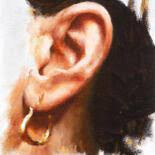
Jewish boys must witness bravery but not shed blood. It is the job of a legal, lawfullly manned governmnet to explain when to save lives and when to end them. This, along with the study of the Torah instills the action orientation called justice within a male Jewish boy.
To rule over the Jewish Self, however more is needed, however. A good heart. It is good sweet and hot to ponder a brave and just man, but without a heart he is no good. In order to cure the heart of the need for drama, displays, disingenuity, all the malfunctioning organ systems of the ego, the Rab prescribes what is called the Ephod, the imprint of the most noble characteristics of the Self upon the chest.
All of the alefbeis performs as the Ephod. About this there is no doubt. The more one studies the Torah and digs into the meaning of the noumena of the alefbeis, the more noble the heart becomes.
It is the noumena contained in the Torah that are the focus of the following passage. Noumena (in Kantian philosophy) a thing as it is in itself, as distinct from a thing as it is knowable by the senses through phenomenal attributes. This means we must know we are a Ruby, a leader, and wield the attributes naturally as the product of this knowlege. To be Simeon, "to resound" to have a good reputation must be the result of a disctinct way one knows about oneself.
The subject matter that follows concerns Ishmaelites, who "hear, respond and obey" like slave boys, except their conduct is exemplary as their masters are of the noblest class. The Gematria includes a reference to each being connected to the Rab through an earring, also through male prostitution, which means the relationship is called Shabbar, "to be satisfied by pure meaning", involving a High and a Low Priest.
To bar is to complete an ordinanance between man and other men and between God and all men. To shab is "to sate":
The root שבע (sb'; now spelled as שׂבע (sb') and pronounced with an s) means to be sated or satisfied with food. It's used literally for people who have (or don't have) enough to eat (Hosea 4:10) or drink (Amos 4:8), but also for the earth sated with rain (Proverbs 30:16), a sword drinking its fill with blood (Jeremiah 46:10). Our verb is also used for fillers other than food: Harlotry (Ezekiel 16:28), plunder (Jeremiah 50:10), an observation (Isaiah 53:10), the goodness of God's house (Psalm 65:4), sons (Psalm 17:14).
And also it may denote an excess: of honey (Proverbs 25:16), tossing (Job 7:4), poverty (Proverbs 28:19), shame (Habakkuk 2:16), and the list goes on.
So an Ishmaelite slave boy must have everything he needs in excees from the High Priest in order to enter into the Noble Covenant and company of other Jews.
To print these noumena off the Ephod "the palette" onto the self and create the Jewish Self is the superior goal of the practice of Judaism. It begins with self-rulership, the attribute of the kings and princes of Israel. This is explained in what is called a Hand, or five verses. This one is the Hand that saved the people from Midian, from strife:
Gideon’s Ephod
22 The Israelites said to Gideon, “Rule over us—you, your son and your grandson—because you have saved us from the hand of Midian.”
23 But Gideon told them, “I will not rule over you, nor will my son rule over you. The Lord will rule over you.”
24 And he said, “I do have one request, that each of you give me an earring from your share of the plunder.” (It was the custom of the Ishmaelites to wear gold earrings.)
25 They answered, “We’ll be glad to give them.” So they spread out a garment, and each of them threw a ring from his plunder onto it.
26 The weight of the gold rings he asked for came to seventeen hundred shekels,[b] not counting the ornaments, the pendants and the purple garments worn by the kings of Midian or the chains that were on their camels’ necks.
27 Gideon made the gold into an ephod, which he placed in Ophrah, his town. All Israel prostituted themselves by worshiping it there, and it became a snare to Gideon and his family.
The Values in Gematria are:
v. 22: Salvation from the hand of Midian. The Value in Gematria is 8109, חאאֶפֶסט, haafest, "the futility" = simplify, strip down, raid, invade. "Do not struggle with the truth."
v. 23: The Lord will rule over you. We are connected to the Spirit of the God of Israel by one ear as the Script says. An accomplished Jew will learn how to recognize His Reports. Sons and Grandsons of the Spirit are the fruits of the actions of one's share intuition with God.
The Value in Gematria is 10197, יאטז , yatz, "be advised."
v. 24: I have one request...that each of you give me an earring from your share of the plunder. Ishmaelites wear gold earrings because they are wise. Personal reports are a result of an Ishmaelites adherence to the Torah are essential to the process of Judaism. This is the boom and beam of the Halachah, the oral instruction aspect of the tradition.
The Value in Gematria is 8944, חטדד "sharpened." Each report "sharpens" the way the Torah is explained.
v. 25: They answered. The Value in Gematria is 7665, זווה, "this is it."
= Echad, "to be separate and to be one" = Olam Ha Ba, the "world that turns."
v. 26: The weight of the gold. Weight is based on how close the effort brought the self into focus as a Jewish Self, i.e. what is was worth. To give up on strife- all the sins of speech and drama class, and loan an ear to the teacher and learn to speak the truth is said to have the weight of 1700 shekels or lifetimes, or one lifetime of one King of Strife.
To overcome the King of Strife and end the hold he has over the necks of the camels, the reasons they speak in lies, tongues, or spur on drama and gay faggot politics is a huge accomplishment for a young male man. Older ones too.
The Value in Gematria is טזזז zzzzz, "the Five Tzavs."
There are Five Sacrifices named in Parsha Tzav. They are performed in sequence and result in the voluntary evolution between a low and a High Priest called a Kohen. They are:
The Torah and the Burnt Offering. (Genesis)
The Torah and the Grain Offering. (Exodus)
The Sin and Guilt Offering. (Leviticus)
The Fellowship Offering. (Numbers)
The Consecration of the Kohanim. (Devarim).
5 x5 are why the Tzav are found in Parsha 25, another example of how the Angel Math works. 25 also = the Iodine Problem. Man needs iodine added to his salt or his blood is no good. This is why we follow the Tzav, the Five Books of the Torah etc. the season the blood and become men among insects= a Kohen.
It is the fully developed man called a Kohen who has it all. He alone we can trust with the rules, the law, and what is right.
There is a coda on the end of this Hand that explains the influence a master of the Five Commands has over others and his role in the collective Jewish Identity Store:
v. 27: Gideon made the gold into an ephod, which he placed in Ophrah, his town. All Israel prostituted themselves by worshiping it there, and it became a snare to Gideon and his family.
Ophrah means to bloom or flourish. Obviously a glib young Jewish prince is going to attract prostitutes to him or her. Why did this become a snare when the above passages state we want people to get a little jealous of us and become attracted to us and the fruits of our actions?
The Value in Gematria is 8562, חהוב , "debt."
All debts are paid to God and the shul through the observance of Shabbat= no sex work, only free sex.
A Report of the observation of Shabbat in its evident and accurate format, which is one of the noumena of Judaism completes one's role as an Ishmaelite.
0 notes
Text
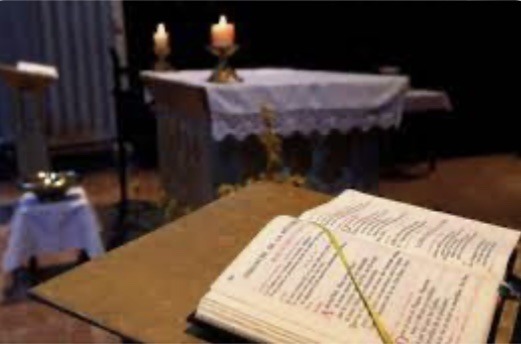
17th April >> Mass Readings (Except USA)
Wednesday, Third Week of Eastertide
(Liturgical Colour: White. Year: B(II))
First Reading
Acts of the Apostles 8:1-8
They went from place to place, preaching the Good News.
That day a bitter persecution started against the church in Jerusalem, and everyone except the apostles fled to the country districts of Judaea and Samaria.
There were some devout people, however, who buried Stephen and made great mourning for him.
Saul then worked for the total destruction of the Church; he went from house to house arresting both men and women and sending them to prison.
Those who had escaped went from place to place preaching the Good News. One of them was Philip who went to a Samaritan town and proclaimed the Christ to them. The people united in welcoming the message Philip preached, either because they had heard of the miracles he worked or because they saw them for themselves. There were, for example, unclean spirits that came shrieking out of many who were possessed, and several paralytics and cripples were cured. As a result there was great rejoicing in that town.
The Word of the Lord
R/ Thanks be to God.
Responsorial Psalm
Psalm 65(66):1-7
R/ Cry out with joy to God, all the earth.
or
R/ Alleluia!
Cry out with joy to God all the earth,
O sing to the glory of his name.
O render him glorious praise.
Say to God: ‘How tremendous your deeds!
R/ Cry out with joy to God, all the earth.
or
R/ Alleluia!
Because of the greatness of your strength
your enemies cringe before you.
Before you all the earth shall bow;
shall sing to you, sing to your name!’
R/ Cry out with joy to God, all the earth.
or
R/ Alleluia!
Come and see the works of God,
tremendous his deeds among men.
He turned the sea into dry land,
they passed through the river dry-shod.
R/ Cry out with joy to God, all the earth.
or
R/ Alleluia!
Let our joy then be in him;
he rules for ever by his might.
His eyes keep watch over the nations:
let rebels not rise against him.
R/ Cry out with joy to God, all the earth.
or
R/ Alleluia!
Gospel Acclamation
John 10:27
Alleluia, alleluia!
The sheep that belong to me listen to my voice,
says the Lord,
I know them and they follow me.
Alleluia!
Or:
cf.Jn6:40
Alleluia, alleluia!
It is my Father’s will, says the Lord,
that whoever believes in the Son shall have eternal life,
and that I shall raise him up on the last day.
Alleluia!
Gospel
John 6:35-40
It is my Father's will that whoever sees the Son should have eternal life.
Jesus said to the crowd:
‘I am the bread of life.
He who comes to me will never be hungry;
he who believes in me will never thirst.
But, as I have told you,
you can see me and still you do not believe.
All that the Father gives me will come to me,
and whoever comes to me I shall not turn him away;
because I have come from heaven, not to do my own will,
but to do the will of the one who sent me.
Now the will of him who sent me
is that I should lose nothing of all that he has given to me,
and that I should raise it up on the last day.
Yes, it is my Father’s will
that whoever sees the Son and believes in him shall have eternal life,
and that I shall raise him up on the last day.’
The Gospel of the Lord
R/ Praise to you, Lord Jesus Christ.
0 notes